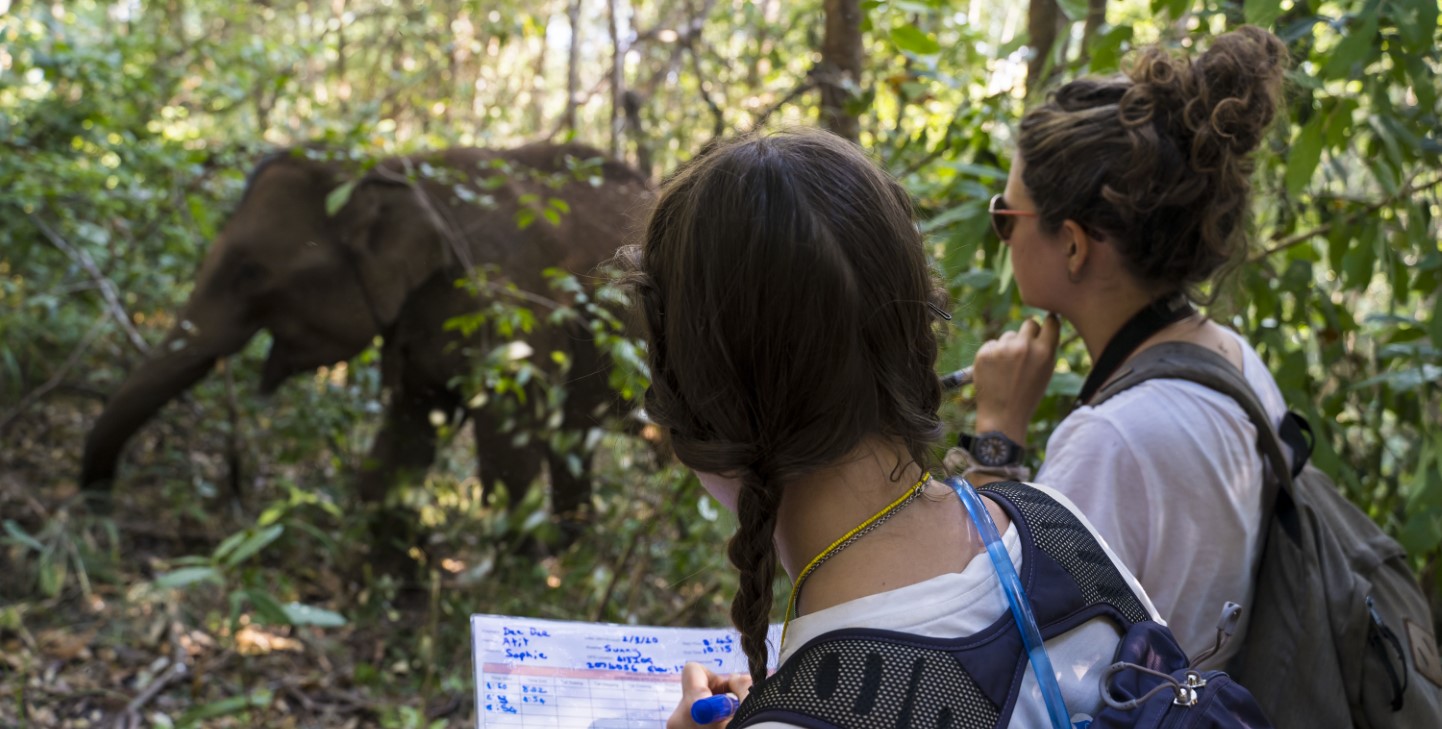Explore the different types of peccaries found in Costa Rica, as well as their importance in the local ecosystem, habitats, behavior, and social structure.
GVI
Posted: May 10, 2023

Petrina Darrah
Posted: May 5, 2023
Elephants are one of the most fascinating and intelligent animals on the planet. They have a complex social structure and a unique way of communicating with each other. Working with elephants can be a highly rewarding experience, whether you are interested in conservation, research, or animal welfare. In this article, we will discuss the various ways you can work with elephants, the skills and qualities you need to possess, the potential risks involved, and the benefits of volunteering with elephants.
Before we dive into the different types of jobs that involve working with elephants, it is important to understand elephant behaviour and communication. Elephants are highly social animals and have a complex system of communication that involves vocalisations, body language, and even seismic vibrations. They are also highly intelligent and have excellent memories, which is why they are often used in circus shows and other forms of entertainment.
However, elephants in captivity often suffer from stress, boredom, and health problems. That’s why it’s important to understand their behaviour and psychology before working with them. There are many resources available for learning about elephant behaviour, including books, documentaries, and online courses. Some of the most important things to know about elephants include their social structure, their communication methods, and their basic needs for food, water, and shelter.

There are many different ways to work with elephants, depending on your interests and skills. If you are interested in animal care and welfare, you may want to work in an elephant sanctuary or zoo, where you can help care for and train captive elephants. If you are interested in research or conservation, you may want to work with organisations that study wild elephant populations and develop strategies to protect them. You can also volunteer with reputable organisations that offer hands-on experiences with elephants, whether it’s in a sanctuary, zoo, or in the wild. Whatever your interests may be, there are many opportunities to work with elephants and make a positive impact on their conservation and welfare. Of course, one of the best ways to work with elephants is to volunteer.
One of the best ways to get involved with working with elephants is to volunteer with a reputable organisation. There are many organisations that offer volunteer opportunities with elephants, both in captivity and in the wild. Some of these organisations provide housing and meals for volunteers, while others require you to make your own arrangements.
Volunteering with elephants is an excellent way to get hands-on experience working with these amazing animals while also contributing to their conservation and welfare. One example of an ethical elephant program is offered by GVI in Chiang Mai, Thailand. GVI’s program involves working with elephants that have been rescued from abusive situations, providing them with care and rehabilitation in a safe and natural environment. As a volunteer, you would assist with tasks such as observing the elephants’ behaviour, learning about elephant behaviour and conservation.
You’ll learn how to work with elephants from members of the Karen community. Many Karen communities are now working to promote sustainable elephant tourism and conservation. They are also involved in elephant welfare and rescue efforts, providing care and rehabilitation to captive elephants that have been subjected to abusive practices. By working with the Karen people and supporting their efforts to promote responsible elephant tourism, volunteers can contribute to the conservation and welfare of elephants while also learning about the rich culture and traditions of the Karen people.
This program emphasises responsible and sustainable tourism practices, ensuring that the elephants are not exploited for entertainment or commercial gain. Volunteering with programs like GVI’s ethical elephant program is a great way to make a positive impact on elephant conservation and welfare while also gaining valuable experience in animal care and research.
In conclusion, working with elephants can be a deeply fulfilling experience that offers the chance to make a positive difference in the lives of these magnificent creatures. Whether you choose to work in an elephant sanctuary, a zoo, or in the wild, it is important to possess the necessary skills and qualities, and to prioritise their welfare and conservation.
By Petrina Darrah

Explore the different types of peccaries found in Costa Rica, as well as their importance in the local ecosystem, habitats, behavior, and social structure.
GVI
Posted: May 10, 2023